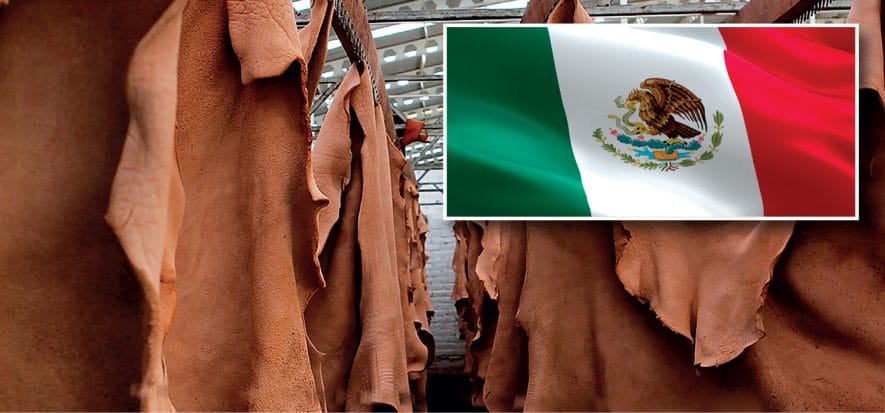Tanneries in Mexico have reopened, in a sense, heading toward normality. Other businesses in the León State have started working as well in the first half of June, all following those lucky enough to start sooner. A new hope for the 13,000 people employed in the district, but productivity at the sites still isn’t at 100% capacity.
Tanneries reopen
The president of reference association for the León state (CICUR), Ernesto Vega Guillot explained to news broadcast tele Diario that, in the last few weeks, other tanneries have opened up. Only 20% of the segment’s companies were working in May, while the percentage today has increased to 50%.Production still isn’t at 100% though, as businesses must face the reality of slow orders coming in. “footwear factories are also being cautious, reaching 30% productivity now – explains Vega Guillot to the television station -.
It’s a problem because production is interrupted and cant ensure the same quality controls. Companies try to work as slowly as possible to do things well”. According to CICUR’s president, the percentage of businesses that has reopened as of today, at a national level, is of 50%. Such situations are bringing optimism to both entrepreneurs and workers, the latter of which counts 13,000 people. Yet, many jobs will likely be lost, as says Vega Guillot, estimating that percentage to be around 10%.
India: traders of raw hides are the first victims of Jalandhar’s crisis
Jalandhar’s tanning district could disappear. The pandemic, the lockdown, lack of personnel and pollution have destroyed most of the Indian Businesses in Punjab. During these uncertain times, traders of raw hides became the first victims. While these traders close down their businesses, raw material for tanning rots inside warehouses.
Traders of raw hides are the first victims
Many workers returned to their villages during the months of lockdown: once the tanneries closed down they weren’t receiving any salary. Meanwhile, raw hides stored in warehouses have started to deteriorate, becoming useless and impossible to sell. So, many entrepreneurs decided to give up, like Bihari Lal Kler, who started a new job and closed down his family company which had been open since 1947.
The Indian entrepreneur told thewire.in the story of his tannery, and of how to survive this crisis he converted into an auto-repair shop. “That’s how I survive – he explains -. The workshop has some clients, but all other activities of mine are ruined. I was able to keep my doors open for a few buyers but now it’s just a way to let the smell of the rotting hides out, as they have been here for 3 months”.
Pollution
The district’s crisis began much sooner than the arrival of Covid-19. On October 28th 2019, Punjab’s tribunal imposed a forced shutdown of all 200 tanneries located in Jalandhar, due to alleged environmental violations and water pollution. The pandemic-caused lockdown did nothing but make matters worse, as about 2,000 workers moved back to their villages. The next review from the government is scheduled to take place in mid-July and those that are still standing are hoping to reopen their doors.
Read also:
- Mexico, Guanajauto’s shoe industry stops: “We brace ourselves for the storm”
- Mexico’s footwear and leather are pessimistic: revenues -50%, production -80%











